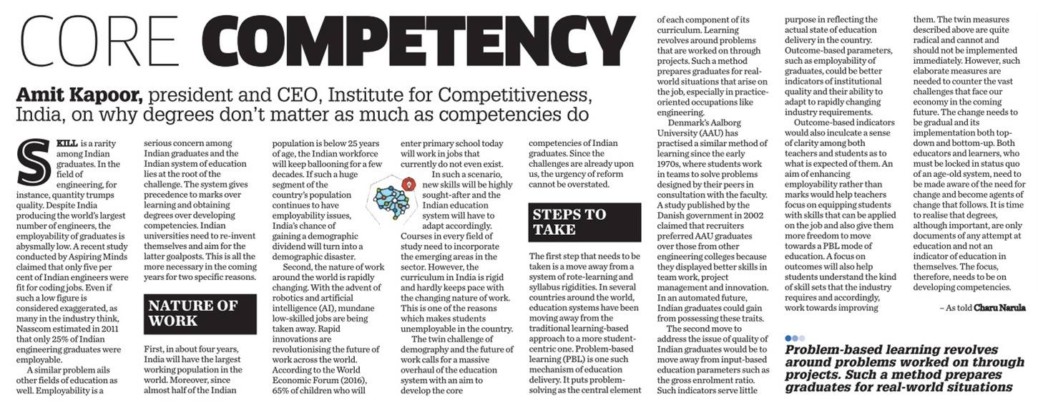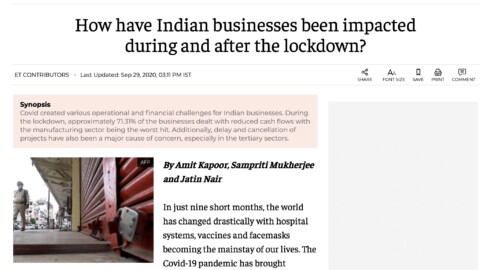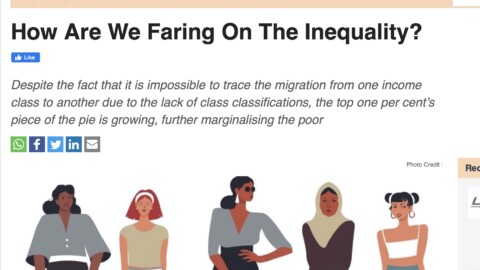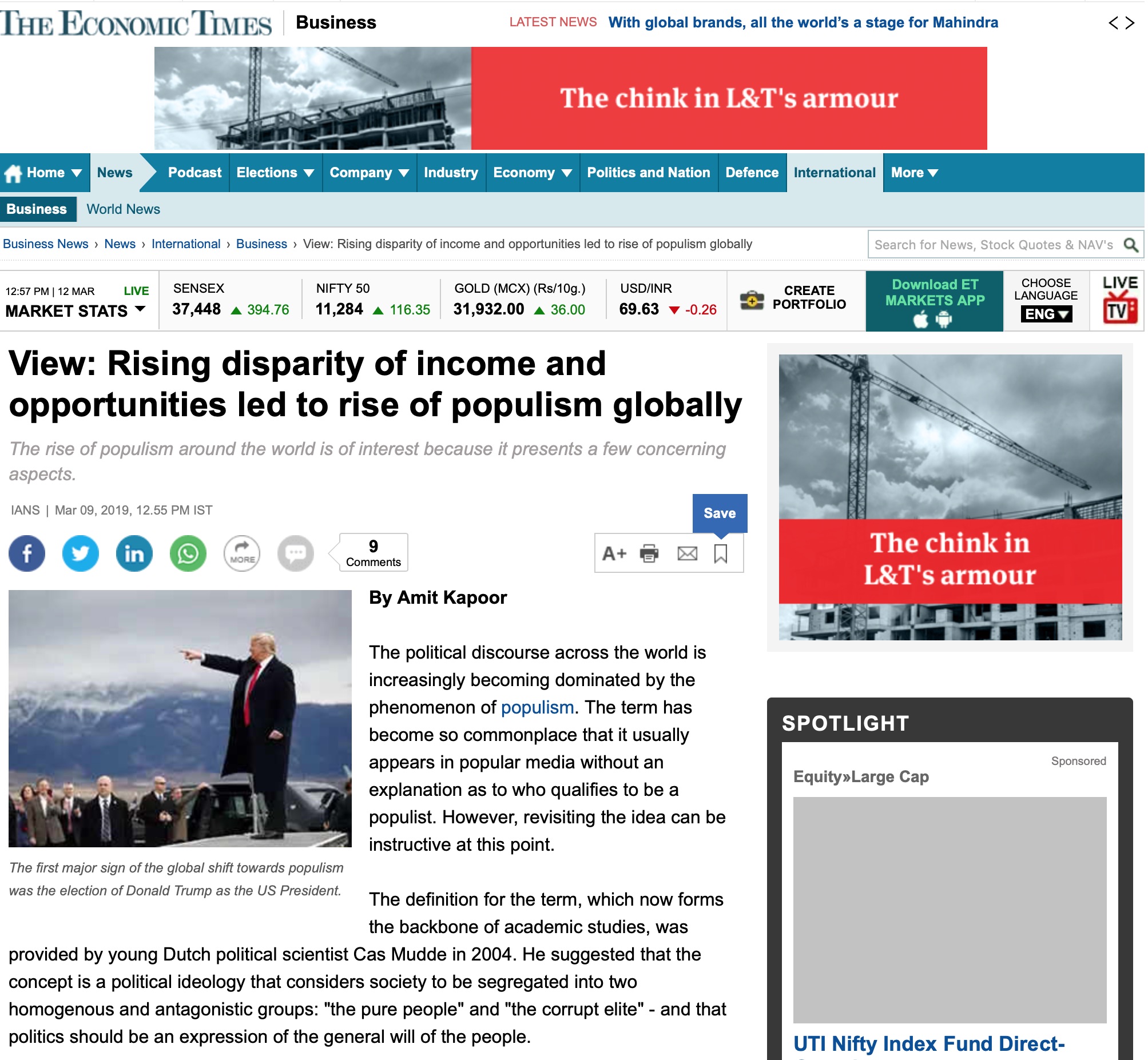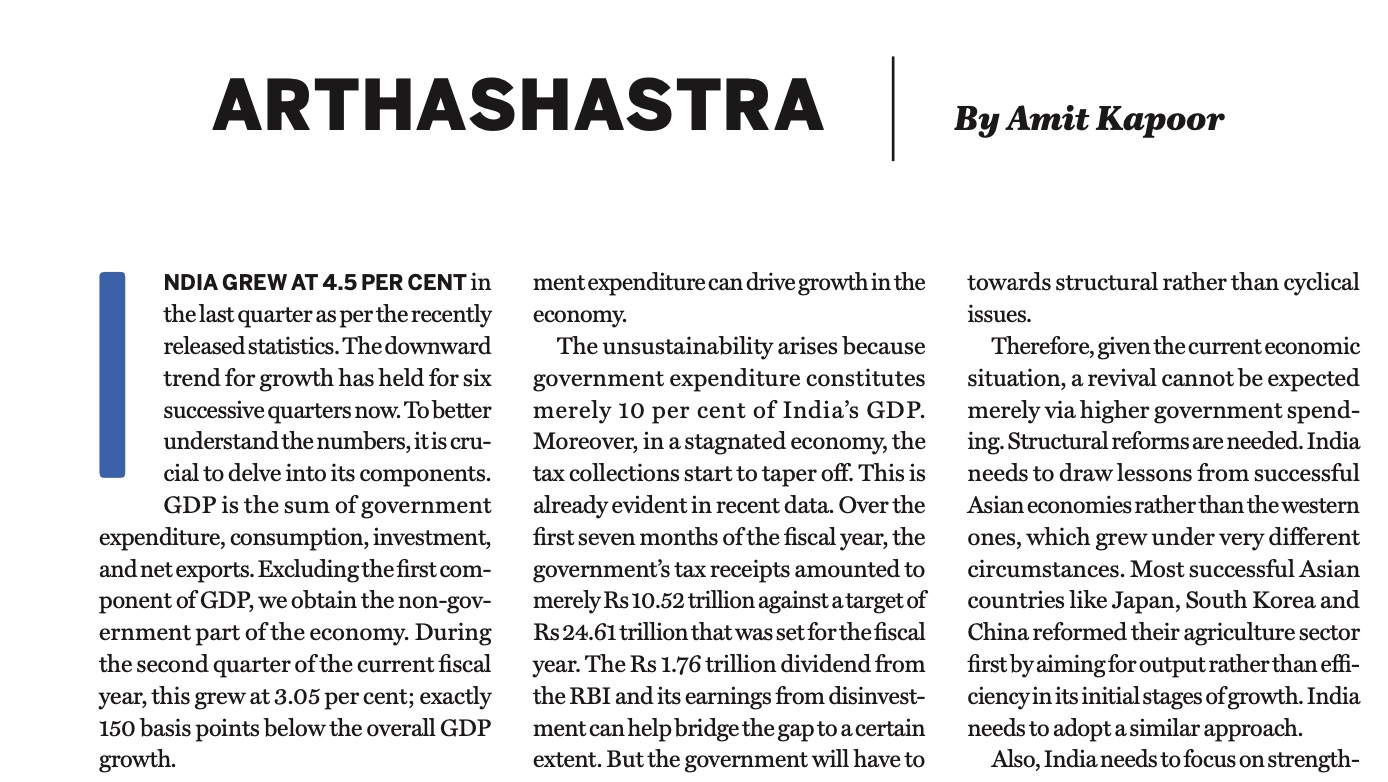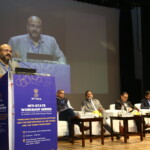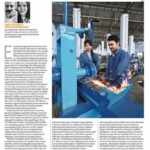Contrary to popular belief, skill is a rarity among Indian graduates. In the field of engineering, for instance, quantity trumps quality. Despite the fact that India produces the world’s largest number of engineers, employability of graduates is abysmally low. A recent study conducted by Aspiring Minds claimed that only 5 percent of Indian engineers were fit for coding jobs. Even if such a low figure is considered exaggerated, as many in the industry feel, NASSCOM estimated in 2011 that only 25 percent of Indian engineering graduates were employable.
A similar problem ails other fields of education as well. Employability is a serious concern among Indian graduates and the Indian system of education lies at the root of the problem. It is a system that gives precedence to marks over learning and obtaining degrees over developing competencies. Indian universities need to re-invent themselves and aim for the latter goalposts. This is all the more necessary in the coming years for two specific reasons.
First, in about four years, India will have the largest working population in the world. Moreover, since almost half of the Indian population is below 25 years of age, the Indian workforce will keep ballooning for a few decades. If such a huge segment of the country’s population continues to have employability issues, India’s chance of gaining a demographic dividend will turn into a demographic disaster.
Second, the nature of work around the world is rapidly changing. With the advent of robotics and Artificial Intelligence (AI), mundane low-skilled jobs are being taken away. Rapid innovations are revolutionising the future of work across the world. According to the World Economic Forum (2016), 65 percent of children who will enter primary school today will work in jobs that currently do not even exist.
In such a scenario, new skills will be highly sought after and the Indian education system will have to adapt accordingly. Courses in every field of study need to incorporate the emerging areas in the sector. However, Indian education curriculum is vastly rigid and hardly keeps pace with the changing nature of work. This is one of the reasons which makes students unemployable in the country.
The twin challenge of demography and future of work call for a massive overhaul of the education system with an aim to develop the core competencies of Indian graduates. Since, the challenges are already upon us, the urgency of reform cannot be overstated.
The first step that needs to be taken is a move away from a system of rote-learning and syllabus rigidities. In several countries around the world, educations systems have been moving away from the traditional learning-based approach to a more student-centric one. Problem-Based Learning (PBL) is one such efficient mechanism of education delivery.
PBL is an innovative mechanism that puts problem-solving as the central element of each component of its curriculum. Learning revolves around problems that are carried out through projects. Such a method prepares the graduates for real-world situations that arise on the job, especially in practice-oriented occupations like engineering.
Denmark’s Aalborg University (AAU) has practiced a similar method of learning since the early 1970s, where students work in teams to solve problems designed by their peers in consultation with the faculty. A study published by the Danish government in 2002 claimed that recruiters preferred AAU graduates over those from other engineering colleges because they displayed better skills in team work, project management and innovation. In an automated future, Indian graduates could gain a lot from possessing these traits.
The second move to address the issue of quality of Indian graduates would be to move away from input-based education parameters like gross enrolment ratio. Such indicators serve little purpose in reflecting the actual state of education delivery in the country. Outcome-based parameters like employability of graduates could be better indicators of institutional quality and their ability to adapt to rapidly changing industry requirement.
Outcome-based indicators would also inculcate a sense of clarity among both teachers and students as to what is expected of them. An aim of enhancing employability rather than marks would help teachers focus on imparting students with skills that can be applied on the job and also give them more freedom to move towards a PBL mode of education. A focus on outcomes will also help students understand the kind of skill sets that the industry requires and accordingly, work towards improving them.
The twin measures described above are quite radical in nature and cannot and should not be implemented immediately. However, such elaborate measures are needed to counter the humongous challenges that face our economy in the coming future. The change needs to gradual and its implementation both top-down and bottom-up. Both educators and learners, who must be locked in status quo of an age-old system, need to be made aware of the need for change and become agents of change that follows. It is time to realise that degrees, although important, are only documents of any attempt at education and not an indicator of education in themselves. The focus, therefore, needs to be on developing competencies.
The article was published with Times of India on May 29, 2017.
